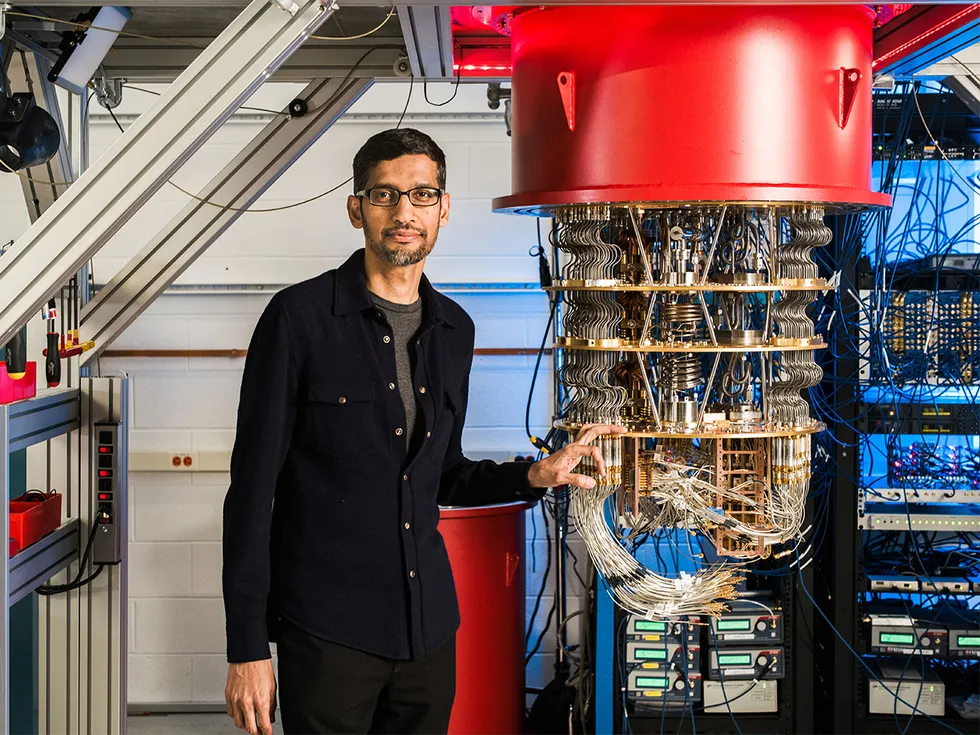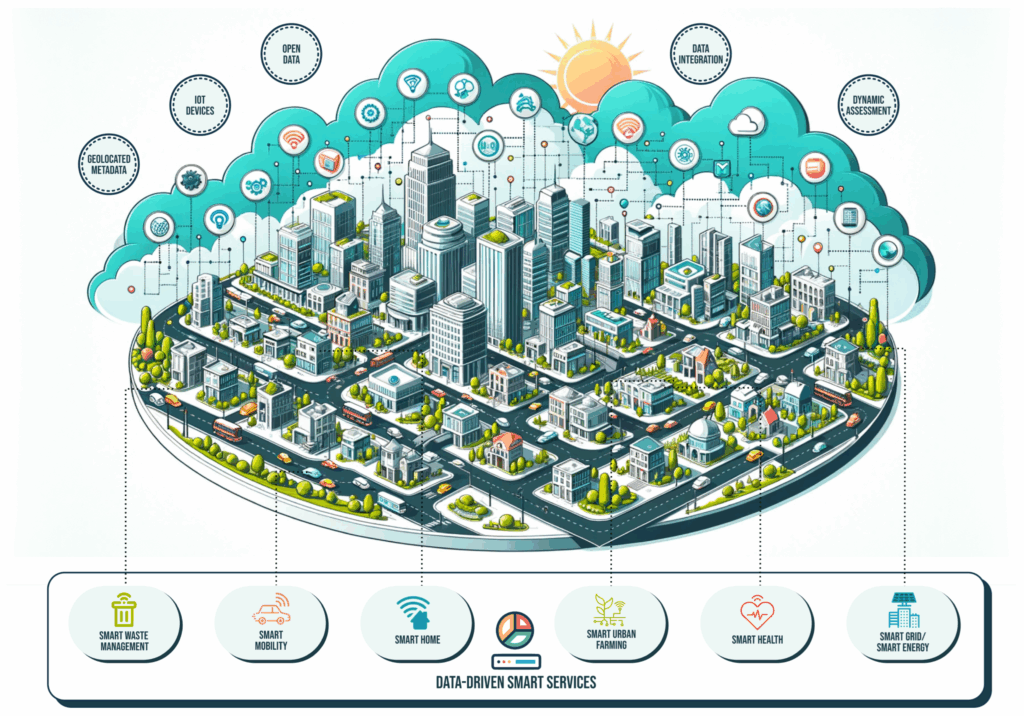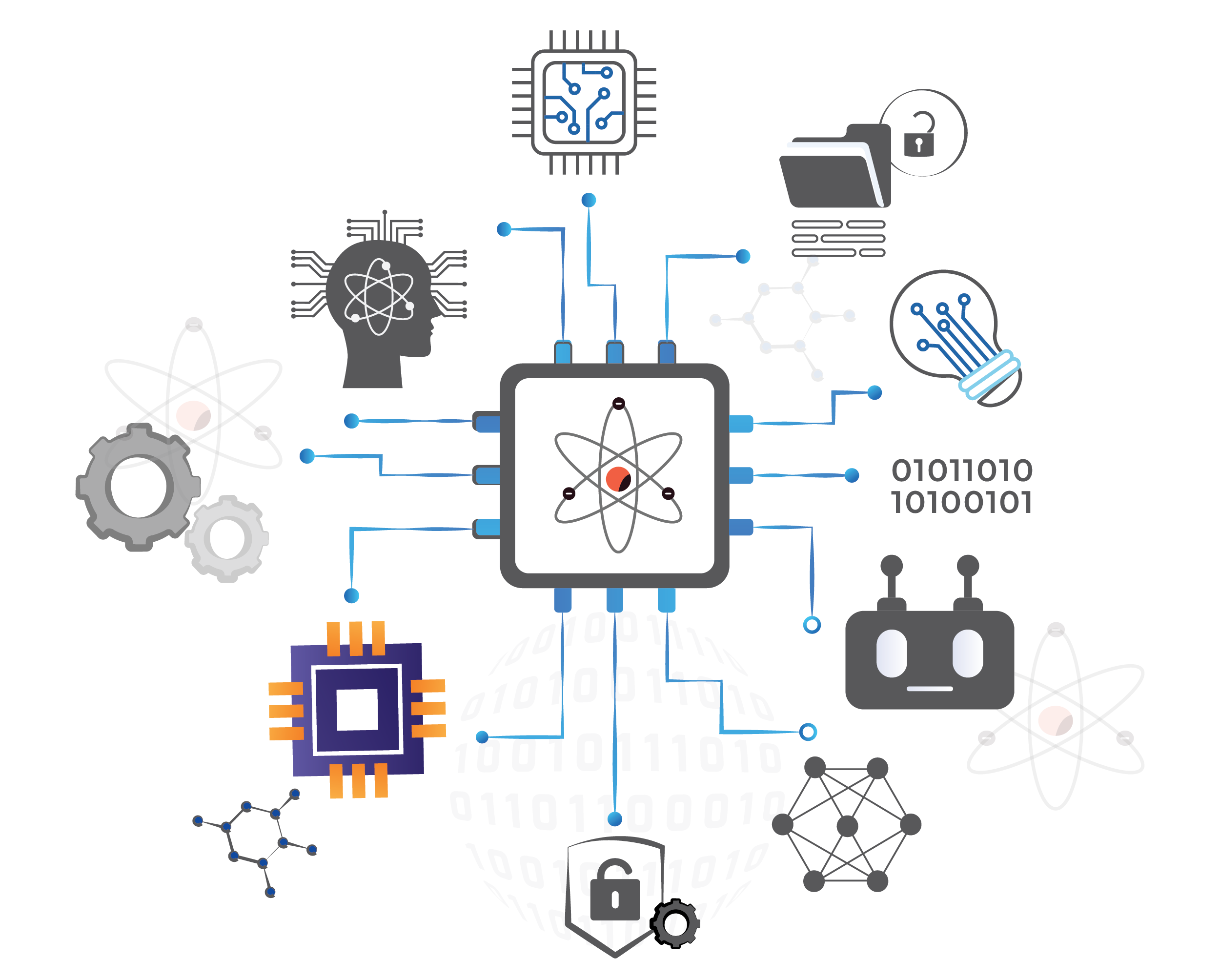Quantum computing, once confined to research labs, is now slowly moving into the spotlight, with experts suggesting it could reshape technology as we know it. Though it might sound futuristic, experts believe quantum computing could reshape industries like cybersecurity, healthcare, and finance within the next few years.
The potential economic impact is immense. Experts estimate that quantum computing could generate trillions of dollars, with fields like finance, healthcare, and materials science first in line to experience its benefits. Yet, despite its promise, many people have limited knowledge about quantum technology and how it works.
The World Economic Forum’s Quantum Economy Network is working to change that by raising awareness and helping build a strong foundation for what’s being called a “quantum economy.” It highlights that this new technology will create a unique economic environment, which could change how we live and work.
Consumer technology, in particular, is on the cusp of a quantum shift. With processing speeds many times faster than conventional systems, quantum technology could bring new possibilities in fields like AI, data security, and advanced computing for everyday applications.
As quantum computing becomes more mainstream, the landscape of consumer tech could soon experience a dramatic transformation, taking it to a level previously thought impossible.
In this article, we’ll look at how quantum computing could transform consumer technology and impact industries in groundbreaking ways. We’ll explore its potential uses, economic impact, and what it could mean for the future of everyday tech.
Table of Contents
What is Quantum Technology?
Quantum technology is built on quantum mechanics, the physics that explains how particles behave at the smallest scales. Researchers like Niels Bohr, Werner Heisenberg, and Erwin Schrödinger first explored these ideas in the 1920s. While quantum technology isn’t entirely new; it’s already behind things like nuclear energy and semiconductors; it’s now advancing in fresh ways.
One of the biggest areas of focus today is quantum computing, which processes data differently from traditional computers. Instead of using bits that can be either 0 or 1, quantum computers use “qubits.” These qubits can be both 0 and 1 at the same time due to a property called superposition. This allows quantum computers to tackle highly complex calculations much faster than current supercomputers.
Quantum technology is also expanding beyond computing, with developments in precision quantum sensors and secure quantum networks. Quantum has been around for a long time, but we’re now finally building the tools to make it usable. With ongoing progress, quantum tech could reshape everything from data processing to everyday tech tools.
Use Cases of Quantum Computing in Consumer Technology
Quantum computing has the potential to drastically change consumer technology, offering capabilities beyond what we can imagine today. Although the field is still in its infancy, one practical way to make quantum computing accessible is through cloud-based services. With this approach, personal devices like laptops and tablets could connect to powerful quantum systems.
Google’s 49-qubit quantum computer is working to manage the error rate that increases as more qubits are added to the system. Despite some progress, making quantum computers suitable for personal use is still a distant goal. Many scientists are focused on proving whether these systems can truly work in a practical, usable form.
At the same time, researchers at UNSW continue their efforts to make quantum devices smaller and more stable. Once quantum computers become programmable, they can eventually help create even better versions of themselves, much like today’s computers are used to build tomorrow’s tech.
The question of whether ordinary people will need quantum computers is a common one. Today, computers are everywhere and important to many industries and daily tasks. Likewise, even without immediate consumer use, quantum computing could lead to groundbreaking advancements in fields such as physics, medicine, and chemistry.

Here are some examples of how quantum computing is being integrated into everyday technology:
Advancing Weather Forecasting
Quantum technology has the potential to change the way weather forecasting is done, offering improved accuracy for various sectors, including agriculture and business. As global warming causes more severe weather patterns, traditional computers struggle to handle the data necessary for accurate predictions.
Weather systems are extremely complex, with many variables, such as air pressure and ocean currents, interacting in unpredictable ways. Quantum computers are equipped to process enormous datasets much faster than current systems, making them ideal for weather forecasting. Farmers, for instance, could benefit from more precise weather forecasts, allowing them to plan better and optimize crop yields.
Revolutionizing Artificial Intelligence
Quantum computing could revolutionize artificial intelligence (AI), particularly as AI’s computational needs continue to grow. Large language models and other AI systems require immense amounts of energy to function. Predictions suggest AI could soon consume as much energy as an entire country.
Quantum computers, however, use much less energy while maintaining consistent, high-level performance. This could help reduce AI’s carbon footprint. Moreover, quantum computing’s ability to process data more quickly could lead to even more powerful AI systems, improving their accuracy and capabilities in various industries.
Fighting Climate Change
Quantum computing could also help address climate change by reducing the energy consumption of data centers. Major tech companies like Google and Microsoft have faced criticism for the carbon emissions from their data centers, which have far surpassed initial estimates.
Quantum computing has the potential to simulate energy-efficient technologies, including better batteries and solar cells. By simulating molecular structures, quantum computers can help identify new materials that improve energy storage and conversion, contributing to a greener, more sustainable energy future.

Transforming Materials Science
Quantum computing could revolutionize materials science by enabling industries to design stronger, lighter, and more efficient materials. By simulating atomic-level interactions with unmatched precision, quantum computers can help discover new materials with properties that benefit manufacturing sectors, including aerospace and electronics.
For example, quantum simulations could lead to more efficient superconductors or innovative materials for use in advanced technology, which could improve manufacturing processes across industries.
Optimizing Traffic and Cybersecurity
Quantum computing also plays an important role in real-time traffic optimization. By analyzing vast amounts of traffic data, quantum computers could help reduce congestion, improve fuel efficiency, and reduce travel times in crowded urban environments.
While quantum computing presents challenges to cybersecurity, it also offers opportunities. Quantum computers could potentially break current encryption systems, but they are also pushing forward the development of quantum-safe cryptography, leading to stronger, more secure data protection.

Revolutionizing Drug Discovery
In drug research, quantum computing holds promise by offering more accurate simulations of molecular interactions. This could speed up drug discovery by providing deeper insights into how substances work at the atomic level.
Quantum computing can also simplify manufacturing processes, making them more cost-effective and efficient. Quantum-powered simulations can optimize product designs, minimizing the need for physical testing and saving both time and resources.
While we may not yet see personal quantum computers in every home, the continuous advancements in quantum computing suggest that this technology will eventually play a major role in our daily lives. The journey to widespread use may be challenging, but the rewards could be enormous.
Challenges Facing Quantum Computing

Despite the growing excitement around quantum computing, several significant obstacles still stand in the way of its full potential and widespread use.
Scalability Issues
Quantum computers still face major challenges in scaling up. While the stability of qubits has improved, constructing a quantum computer with millions of qubits that can work together reliably is a long-term goal. Researchers are working hard to find solutions, but achieving large-scale quantum computing remains a distant target.
Quantum Error Correction
Error correction in quantum systems has advanced but still isn’t foolproof. Quantum computers are highly sensitive to noise and interference, which can cause errors in calculations. Developing better error correction methods is important for reliable quantum computing. This remains an ongoing area of research, with significant improvements expected in the coming years.
Hardware Limitations
The physical construction of quantum computers presents complex engineering challenges. These computers require extremely low temperatures to function, and even small environmental changes can disrupt quantum operations. Building hardware that can perform consistently outside of tightly controlled environments is a major challenge that researchers are still trying to overcome.
Security Risks
Quantum computing holds the potential to break current cryptographic systems, which could have serious security implications. As quantum technology advances, it can make existing encryption methods obsolete. While efforts are underway to develop quantum-resistant cryptography, securing data against potential quantum-enabled cyberattacks remains a significant concern.
High Costs and Limited Access
Quantum computing remains costly, both in terms of hardware and the expertise needed to operate it, limiting access to quantum systems, especially for smaller businesses or researchers without substantial funding. Although quantum cloud services are helping to make the technology more accessible, high costs and complexity still pose barriers to broader adoption.
What is the Future of Quantum Computing?
The future of quantum computing relies on ongoing research and development. Governments, universities, and private companies are investing heavily to tackle current challenges and reach the full potential of this technology. As new breakthroughs are made, we get closer to realizing quantum computing’s promise.
In the future, the success of quantum computing is expected to rely on collaboration between researchers, engineers, and businesses. Though we are still in the early stages, the progress made in 2024 shows that the quantum revolution is well on its way. By staying informed about developments, both businesses and individuals can prepare for the significant changes quantum computing will bring.
At EvolveDash, we’re passionate about helping businesses grow and evolve in the digital world. If you’re focused on building a standout digital presence or launching a custom mobile app, our team is here to help you every step of the way. With our expertise in technology and marketing, we have helped over 200 businesses build and grow their brands and can do the same for you.
We’d love to chat about how we can help you reach your goals with customized solutions that work for you. Ready to take the next step? Let’s make it happen.
FAQs
- How does quantum computing impact businesses?
Quantum computing has the potential to revolutionize industries by solving problems that are too complex for traditional computers. It could help businesses optimize logistics, improve machine learning, and enhance security systems.
- When will quantum computers be widely available?
While progress is being made, quantum computers are still in the research and development phase. It will likely take several more years before they become widely available for practical, everyday use.
- Are there any industries that will benefit most from quantum computing?
Industries like healthcare, finance, logistics, and cybersecurity are expected to benefit greatly from quantum computing, as it can provide solutions to complex challenges such as drug discovery, financial modeling, and data security.
- How does quantum computing differ from classical computing?
Classical computing relies on bits, which can be in one of two states (0 or 1), whereas quantum computing uses qubits that can represent multiple states simultaneously, offering the potential to solve more complex problems more efficiently.



















